Web 2.0 Summit 2009 and ReadWriteWeb Hires New COO
My trip to San Francisco for the Web 2.0 Summit in October 2009 is memorable mainly for my discussions with Sean Ammirati, soon to become RWW’s new chief operating officer.
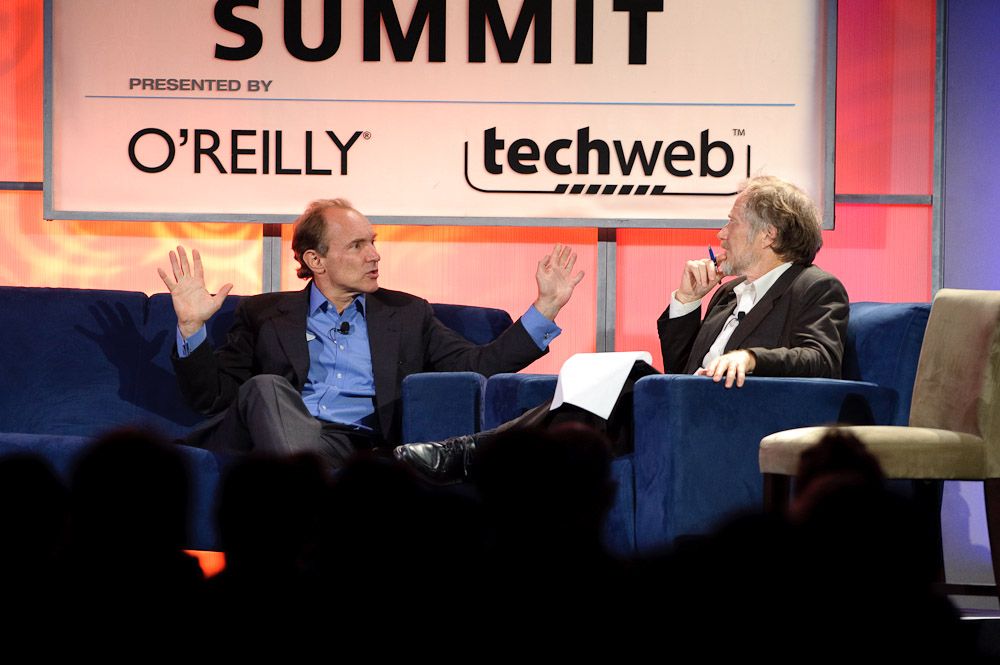
After running our debut event, the ReadWrite Real-Time Web Summit, in Mountain View that October of 2009, my next port of call was the Web 2.0 Summit in San Francisco. I was keen to meet up with Sean Ammirati, at that point a RWW writer and podcaster in his spare time, who would be there for a couple of days.
I wanted to get Sean's opinion on the Bernard situation, but also I was curious how his own startup, mSpoke, was doing. He’d obviously been busy on it, since ReadWriteTalk had been off the air for the past six months. I wasn’t worried about the podcast, since I didn’t see that as a big focus for RWW at this time. Also, it was part of the deal of unpaid partnerships with entrepreneurs like Sean and Alex Iskold that some periods would be relatively inactive. But I knew I could always talk through business decisions with either of them, any time we happened to be in the same place at the same time.

Sean and I met up on Tuesday, October 20, after the first day at the summit, which was being held at the Westin Hotel in San Francisco. I was still buzzing after Mary Meeker’s latest internet trends presentation, which I’d quickly posted about on RWW. Meeker had told the entrepreneur-heavy audience that financial markets had rebounded from the financial crisis of 2008 to 2009. She was particularly bullish on the mobile internet market and noted the impact of “powerful new publishing / distribution platforms” like YouTube, Facebook, and Twitter. It seemed like boom times again for Web 2.0, and I felt that RWW was being carried along on this swell.
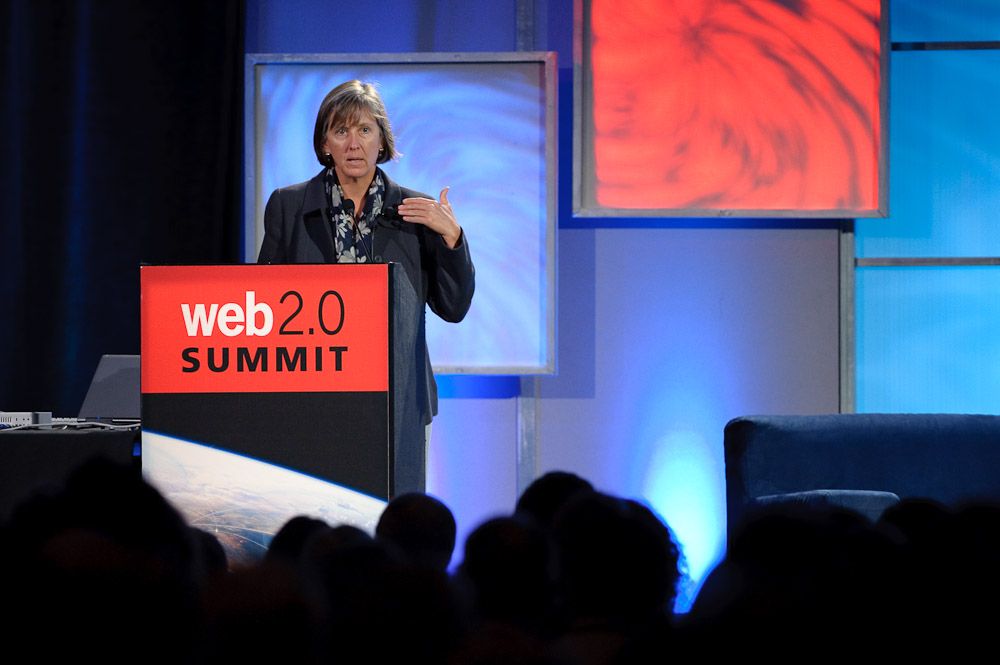
When we sat down for dinner that evening, I told Sean about how well the unconference had gone and that it had been a wonderful to spend time with the team. I also told him about my tense meetings with Bernard and that I thought I’d probably end up letting him go. To my surprise, Sean responded that there was a chance he might be available to take over as COO, if I was open to that. This I hadn’t expected to hear, so I asked what was up with his own business.
It turned out that Sean and his cofounders were having financial issues and looking for more funding. If that didn’t come through, they would probably have to wind down the business. He was in Silicon Valley not for the summit, but rather for an important funding meeting with their VC firm that would determine the company’s fate. I asked him to keep me posted, as I would absolutely love to have him as COO if he was available.
A few days later, as I was on my way back to New Zealand, Sean informed me that they would indeed be winding down mSpoke, so there was a decent chance he’d be available to work for RWW by the end of November. I replied that I’d like to continue that discussion.
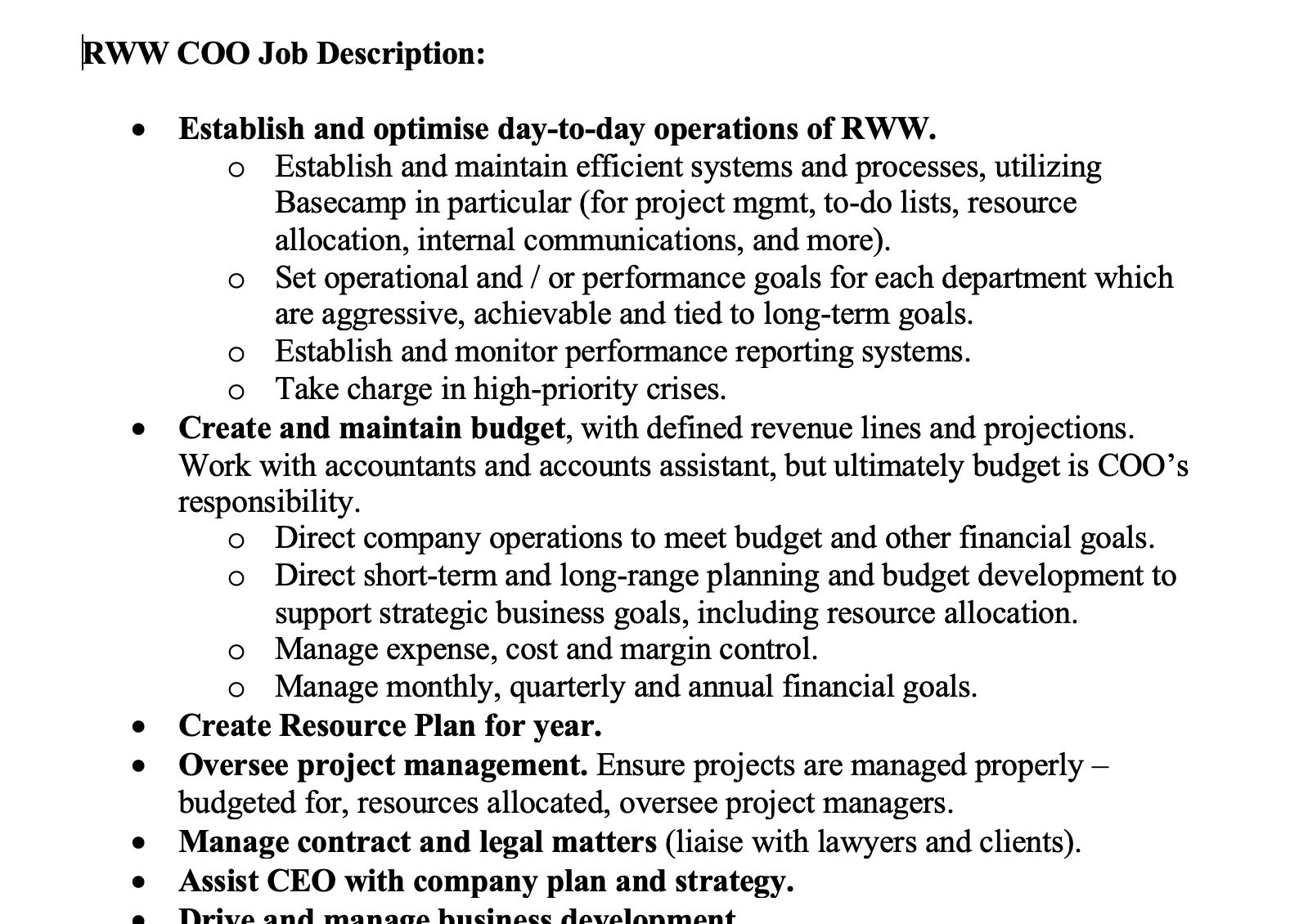
Just as Sean still had some things to work through with mSpoke, I still had some things to work through with Bernard. While I was in San Francisco, I’d sent him a long email setting out my expectations for the COO role. I’d reiterated that I would be implementing KPIs and that I expected a weekly report from him going forward. He hadn’t yet responded in full, so I wanted to give him a chance to do that.
After I got back, Sean and I spoke again via Skype. He still had some negotiation to do with his mSpoke board about how to wrap things up there, but he was confident that he’d shortly be available to work for RWW—which he was keen to do. For my part, the decision was looking more and more clear cut. I’d given Bernard a chance to get his act together since my email ultimatum on October 20, but by the end of October he still hadn’t responded about his KPIs. Also, I’d just begun the weekly report process for all the management team, and his first report was unacceptable. I’d told everyone that I wanted a project-by-project breakdown, progress on timeframes, and similar detail. Bernard’s first report had none of this and hadn’t addressed most of the items that were in his high-priority list.
Enough was enough! But before I notified Bernard of my decision, I needed to be 100 percent sure that Sean would take the job. I made the offer to Sean on Wednesday, November 4. It included a small slice of equity and a generous salary, so he was happy with it. He just had to confirm that the mSpoke board would let him take the RWW job. Since they were no longer able to pay him, I figured it was the least they could do—but of course that was up to Sean to confirm. He duly gave the all-clear on Thursday evening.
On Friday, I gave Bernard his notice. “This is one of the hardest business decisions I’ve had to make and it saddens me to deliver this news to you,” I wrote. Firing people is never easy, I had learned over the past several years, and this was by far the biggest such decision I’d had to make. I’d let go of a few writers for not performing, but it wasn’t the same as parting ways with a member of your management team.
While I was upset that it had come to this with Bernard, I was confident that Sean was the right person to move things forward for RWW. As part of our informal interview process, Sean had sent me a couple of the spreadsheets he’d created in previous jobs. They were financial and resource planning models, and I was very impressed by their level of detail, particularly the way he’d done financial projections. As soon as I saw those spreadsheets, I knew this was exactly what RWW needed.
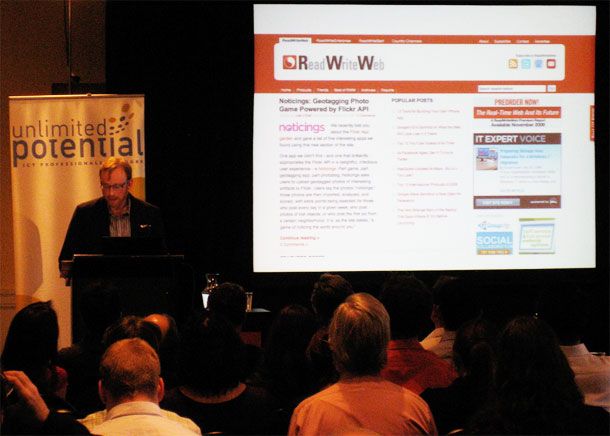
Not wanting a repeat of the acquisition communications failure, I’d told Marshall about the COO situation several days before giving Bernard his notice. He was sad that Bernard would have to go, but he understood my decision.
Sean wanted to keep things quiet for the first several weeks, as part of his agreement with the mSpoke board. That was fine by me, as I needed to make sure the handover from Bernard to Sean went smoothly. I’d need to introduce Sean to all our sponsors, as well as FM Publishing and our various suppliers (our web hosts and so on). It also gave me a few weeks to liaise with Bernard over the terms of his final payout and the public messaging of the news.
Bernard and I had some vigorous back-and-forth, and I had to consult my NZ lawyer a few times, but by mid-November we’d come to an agreement. Bernard could’ve made things more difficult, but he accepted the decision and told me he had his own startup plans brewing. So, in the end, it was an amicable split.
On December 1, I made the announcement about our new COO on RWW. By the end of that month, I was feeling great about the decision. As expected, Sean made an immediate impact on the business: we had a solid financial plan going into 2010, and he hit the ground running with FM Publishing and all our sponsors. He’d also confirmed by the end of November that our first event had made a profit of a bit under $40,000.
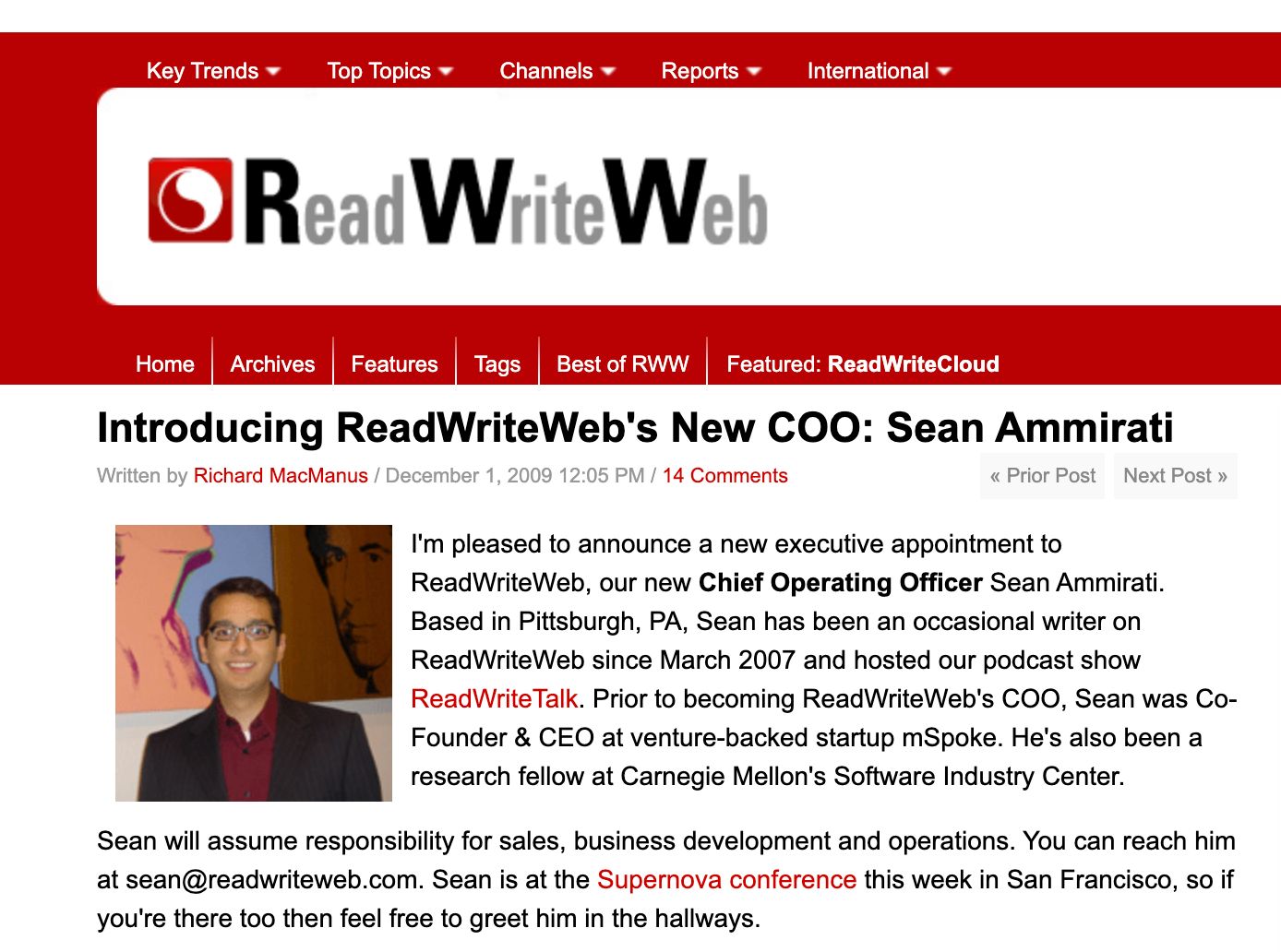
This clearer financial picture gave us the confidence to hire several more people before the end of the year. We added two more writers, Mike Melanson and Chris Cameron, and a new production editor, Abraham Hyatt (another Portlander). We were also able to bring on our talented webmaster, Jared Smith. From an editorial perspective I was particularly pleased to have Abraham on board, as it would enable me to focus more on the overall content strategy for RWW, as well as on writing my own posts.
We also, finally, made the decision to move off our current web hosts. We decided to stick with Movable Type, since Six Apart had stepped up and agreed to give us more assistance, but we’d be moving to one of their preferred web hosts, Contegix. Elyssa had gotten that deal over the line.
By the end of 2009, things were lining up well. It had been a crazy year for me, with the breakup of my marriage and the business wobbles. But our first RWW conference in October had been a turning point—it gave both me and the company a much-needed boost.
To cap the year off, RWW hit three million page views per month for the first time in December. We were on a roll again. I was on a roll again.
This post is part of my serialized book, Bubble Blog: From Outsider to Insider in Silicon Valley's Web 2.0 Revolution. View table of contents.
Next up: 045. SXSW 2010 and RWW Co-Hosts a Party at Austin City Limits
Buy the Book
My Web 2.0 memoir, Bubble Blog: From Outsider to Insider in Silicon Valley's Web 2.0 Revolution, is now available to purchase:
- Paperback, US$19.99: Amazon; Bookshop.org
- eBook, US$9.99: Amazon Kindle Store; Apple Books; Google Play
Or search for "Bubble Blog MacManus" on your local online bookstore.